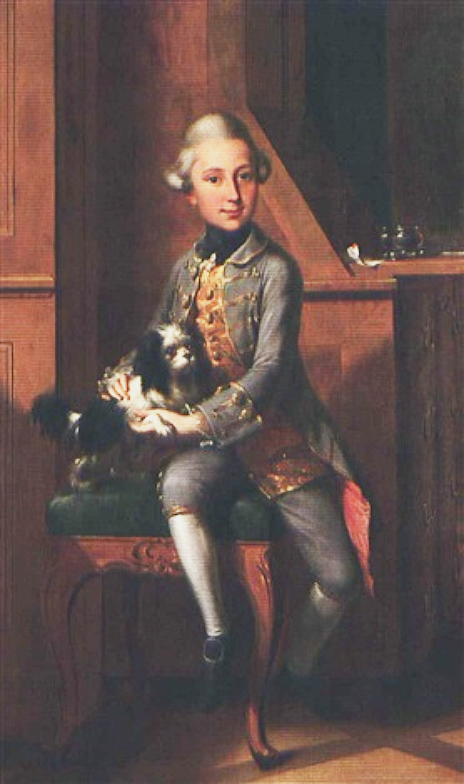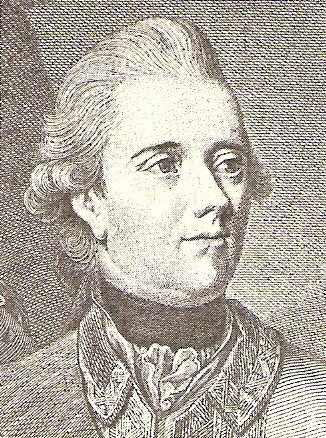|
Wesel Citadel
The Wesel citadel is the largest intact fortification system of the Rhineland and was built 1688–1722 in Wesel according to plans by Johan de Corbin, in the form of a pentagonal star, with each point of the star being a bastion. The citadel was the core of the fortress of Wesel. It is currently used as a cultural centre. Architecture The main architectural features of the citadel can be derived from the principles of Sébastien Le Prestre de Vauban, the most prominent constructor of fortifications at the time. The construction costs of the phase built between 1668 and 1700 are estimated at 373,452 Reichsthaler. In subsequent years also, a substantial amount of funds flowed into the construction, for the years 1701 and 1702 the costs were 221,600 Reichsthaler. The entire Wesel fortification was at this time armed with 250 cannons. In 1687 Frederick William I, Elector of Brandenburg, Frederick William I of Brandenburg ordered the construction of a citadel to turn Wesel into a fo ... [...More Info...] [...Related Items...] OR: [Wikipedia] [Google] [Baidu] |
Zitadelle Wesel1
Zitadelle ("Citadel") may refer to: *Spandau Citadel (German: Zitadelle Spandau), a fortress in Berlin *Zitadelle (Berlin U-Bahn), a railway station serving the Spandau Citadel *Zitadelle Mainz, a fortress in Mainz *Operation Zitadelle, the German offensive operation for the Battle of Kursk {{disambig ... [...More Info...] [...Related Items...] OR: [Wikipedia] [Google] [Baidu] |
Generalfeldmarschall
''Generalfeldmarschall'' (from Old High German ''marahscalc'', "marshal, stable master, groom"; en, general field marshal, field marshal general, or field marshal; ; often abbreviated to ''Feldmarschall'') was a rank in the armies of several German states and the Holy Roman Empire (''Reichsgeneralfeldmarschall''); in the Habsburg monarchy, the Austrian Empire and Austria-Hungary, the rank ''Feldmarschall'' was used. The rank was the equivalent to ''Großadmiral'' ( en, Grand Admiral) in the ''Kaiserliche Marine'' and ''Kriegsmarine'', a five-star rank, comparable to OF-10 in today's NATO naval forces. Austrian Empire and Austria-Hungary The rank existed in the Austrian Empire as ''Kaiserlicher Feldmarschall'' ("imperial field marshal") and in Austria-Hungary as '' Kaiserlicher und königlicher Feldmarschall'' - ''Császári és királyi tárbornagy'' ("imperial and royal field marshal"). Both were based on prior usage during the Holy Roman Empire. The Emperor-King held the ... [...More Info...] [...Related Items...] OR: [Wikipedia] [Google] [Baidu] |
Forts In Germany
A fortification is a military construction or building designed for the defense of territories in warfare, and is also used to establish rule in a region during peacetime. The term is derived from Latin ''fortis'' ("strong") and ''facere'' ("to make"). From very early history to modern times, defensive walls have often been necessary for cities to survive in an ever-changing world of invasion and conquest. Some settlements in the Indus Valley civilization were the first small cities to be fortified. In ancient Greece, large stone walls had been built in Mycenaean Greece, such as the ancient site of Mycenae (famous for the huge stone blocks of its 'cyclopean' walls). A Greek '' phrourion'' was a fortified collection of buildings used as a military garrison, and is the equivalent of the Roman castellum or English fortress. These constructions mainly served the purpose of a watch tower, to guard certain roads, passes, and borders. Though smaller than a real fortress, they acted ... [...More Info...] [...Related Items...] OR: [Wikipedia] [Google] [Baidu] |
William I, Elector Of Hesse
William I, Elector of Hesse (german: link=no, Wilhelm I., Kurfürst von Hessen; 3 June 1743 – 27 February 1821) was the eldest surviving son of Frederick II, Landgrave of Hesse-Kassel (or Hesse-Cassel) and Princess Mary of Great Britain, the daughter of George II. Biography Early life Prince William was born on 3 June 1743 in Kassel, capital of the Landgraviate of Hesse-Kassel in the Holy Roman Empire. Born into the House of Hesse, he was the second but eldest surviving son of Prince Frederick of Hesse-Kassel (the future Landgrave Frederick II), and his wife Princess Mary of Great Britain. A former heir to the landgraviate, also named William, had died in infancy in 1742; therefore, hopes were high for the future of the new heir apparent. He had two younger brothers: Prince Charles and Prince Frederick. His father's marriage with the British princess was not a happy one, and Frederick abandoned the family in 1747 and converted to Catholicism in 1749. In 1755 he formally an ... [...More Info...] [...Related Items...] OR: [Wikipedia] [Google] [Baidu] |
Friedrich August Albrecht Von Tschirschky
Friedrich may refer to: Names * Friedrich (surname), people with the surname ''Friedrich'' * Friedrich (given name), people with the given name ''Friedrich'' Other * Friedrich (board game), a board game about Frederick the Great and the Seven Years' War * ''Friedrich'' (novel), a novel about anti-semitism written by Hans Peter Richter * Friedrich Air Conditioning, a company manufacturing air conditioning and purifying products *, a German cargo ship in service 1941-45 See also * Friedrichs (other) * Frederick (other) * Nikolaus Friedreich {{disambig ja:フリードリヒ ... [...More Info...] [...Related Items...] OR: [Wikipedia] [Google] [Baidu] |
Martin Ernst Von Schlieffen
Martin Ernst von Schlieffen (30 October 1732 in Pudenzig, Pomerania – 15 February 1825 near Heiligenrode) was a German general, politician, writer and garden architect. Schlieffen was the son of the Prussian officer and landowner, Hans Michael von Schlieffen and his wife Anna Helena von Petersdorff. He was a member of the Schlieffen family, which belonged to the German nobility. In 1745 he joined the Prussian army. He served in the garrison regiment in Berlin, until the regiment was divided into smaller garrisons in Eberswalde, Bernau and Templin. In 1749 he was transferred to the Guards in Potsdam, with King Frederick II. Through reading, he educated himself as a writer. In 1755 he got a lung infection and was dismissed from the Prussian military, and was not re-employed in 1757 after his recovery. In 1757 he joined the Hessian military, and by 1763 had become a general. He had served time as adjutant-general to Duke Ferdinand of Brunswick-Wolfenbüttel. In 1772 he was promoted ... [...More Info...] [...Related Items...] OR: [Wikipedia] [Google] [Baidu] |
Friedrich Wilhelm Von Gaudi
Friedrich Wilhelm Ernst Freiherr von Gaudi (Gaudy) (23 August 1725 in Spandau, Berlin – 13 December 1788 in Wesel) was a Prussian Lieutenant General who served Frederick the Great in the Seven Years' War. His father was Andreas Erhard von Gaudi, a Prussian colonel who died in action near Habelschwerdt on 14 February 1745. His mother was Maria Elisabeth von Grävenitz.„Gaudy, Friedr. Wilh. v.“ von Ernst Graf zur Lippe-Weißenfeld in: Allgemeine Deutsche Biographie, herausgegeben von der Historischen Kommission bei der Bayerischen Akademie der Wissenschaften, Band 8 (1878), S. 419–420, Digitale Volltext-Ausgabe in Wikisource, URL: https://de.wikisource.org/w/index.php?title=ADB:Gaudy,_Friedrich_Wilhelm_von&oldid=2496442 (Version vom 11. März 2017, 19:42 Uhr UTC) Gaudi came from a noble, originally Scottish family, which had served the rulers of Brandenburg for more than 100 years. He studied in Königsberg, and then in 1744 entered the Infantry Regiment "Prinz Heinrich" (Nr. ... [...More Info...] [...Related Items...] OR: [Wikipedia] [Google] [Baidu] |
Heinrich August De La Motte Fouqué
Ernst Heinrich August de la Motte Fouqué (4 February 1698 – 3 May 1774) was a Kingdom of Prussia, Prussian Lieutenant general and general, General der Infanterie and a confidant of King Frederick the Great. Fouqué held the title of ''Freiherr'' (baron). Early life Born in The Hague to an old Normandy, Norman family, Fouqué was the second son of a Huguenot nobleman who had emigrated from France as a result of the revocation of the Edict of Nantes. In 1706, Fouqué became a Page (occupation), page at the court of Leopold I, Prince of Anhalt-Dessau. As a cadet in the 3rd Infantry Regiment of Halle, Saxony-Anhalt, Halle, Fouqué took part in the Prussian campaign in Vorpommern. He was promoted to ''Premier-Leutnant'' on 8 March 1719, to ''Stabskapitän'' in 1723, and on 21 February 1729 to company commander. Friendship with Frederick the Great Fouqué befriended Crown Prince Frederick II of Prussia, Frederick of Prussia, visiting him while the crown prince restricted to Küstrin. ... [...More Info...] [...Related Items...] OR: [Wikipedia] [Google] [Baidu] |
Frederick II, Landgrave Of Hesse-Kassel
Frederick II (german: Landgraf Friedrich II von Hessen-Kassel) (14 August 1720 – 31 October 1785) was Landgrave of Hesse-Kassel (or Hesse-Cassel) from 1760 to 1785. He ruled as an enlightened despot, and raised money by renting soldiers ( called "Hessians") to Great Britain to help fight the American Revolutionary War. He combined Enlightenment ideas with Christian values, cameralist plans for central control of the economy, and a militaristic approach toward international diplomacy. Early life Frederick was born at Kassel in Hesse, the son of William VIII, Landgrave of Hesse-Kassel and his wife Dorothea Wilhelmine of Saxe-Zeitz. His paternal grandfather was Charles I, Landgrave of Hesse-Kassel, and his paternal uncle was Frederick I of Sweden. His education was initially entrusted to Colonel August Moritz von Donop and then from 1726 to 1733 to the Swiss theologian and philosopher, Jean-Pierre de Crousaz. Marriages and children On 8 May 1740, by proxy in London, and on 28 ... [...More Info...] [...Related Items...] OR: [Wikipedia] [Google] [Baidu] |
Friedrich Wilhelm Von Dossow
Friedrich Wilhelm von Dossow (17 December 1669 – 28 March 1758) was a Prussian ''Generalfeldmarschall'' and Governor of Wesel. Family Friedrich Wilhelm was a member of the von Dossow family (also ''Dossau'' and ''Dossen''), old Pomeranian nobility first mentioned in 1330. The family's main possession was Cunow near Stettin and Greifenhagen. Friedrich Wilhelm was the son of the district president, Richard Thomas von Dossow. Dossow was married three times, although he did not have any children. Concerned about the welfare of soldiers' children, he opened free schools for them out of his own means. Military career Dossow was educated at the Joachimsthalsches Gymnasium in Berlin; in 1688 he participated in the burial of Frederick William, the "Great Elector". After attending the military college in Kolberg, Dossow joined Prince Alexander of Courland's regiment in the Duchy of Prussia. After the regiment was strengthened with a detachment of troops from the Margraviate of ... [...More Info...] [...Related Items...] OR: [Wikipedia] [Google] [Baidu] |
Konrad Heinrich Von Der Mosel
Konrad is a German (with variants ''Kunz'' and ''Kunze'') given name and surname that means "bold counselor" and may refer to: People Given name Surname *Alexander Konrad (1890–1940), Russian explorer *Antoine Konrad (born 1975), birth name of DJ Antoine, Swiss DJ *Carina Konrad (born 1982), German politician * Christoph Werner Konrad (born 1957), German politician * Edmond Konrad (1909–1997), Rear Admiral, United States Navy *Franz Konrad (racing driver) (born 1951), Austrian racing driver *Franz Konrad (SS officer) (1906–1952), German SS officer executed for war crimes *Franz Conrad von Hötzendorf (1852–1925), Chief of the General Staff of the Austro-Hungarian Army at outbreak of World War I *Franz Konrad von Rodt (1706–1775), Bishop of Constance * György Konrád (1933–2019), Hungarian writer *Rudolf Konrad (1891–1964), German general during World War II *Michaela Konrad (born 1972), Austrian artist *Otto Konrad (born 1964), Austrian football player *Paul Konrad ... [...More Info...] [...Related Items...] OR: [Wikipedia] [Google] [Baidu] |
Johann Sigismund Von Heiden (1656–1730)
Johann, typically a male given name, is the German form of ''Iohannes'', which is the Latin form of the Greek name ''Iōánnēs'' (), itself derived from Hebrew name ''Yochanan'' () in turn from its extended form (), meaning "Yahweh is Gracious" or "Yahweh is Merciful". Its English language equivalent is John. It is uncommon as a surname. People People with the name Johann include: Mononym *Johann, Count of Cleves (died 1368), nobleman of the Holy Roman Empire *Johann, Count of Leiningen-Dagsburg-Falkenburg (1662–1698), German nobleman *Johann, Prince of Hohenzollern-Sigmaringen (1578–1638), German nobleman A–K * Johann Adam Hiller (1728–1804), German composer * Johann Adam Reincken (1643–1722), Dutch/German organist * Johann Adam Remele (died 1740), German court painter * Johann Adolf I, Duke of Saxe-Weissenfels (1649–1697) * Johann Adolph Hasse (1699-1783), German Composer * Johann Altfuldisch (1911—1947), German Nazi SS concentration camp officer executed for wa ... [...More Info...] [...Related Items...] OR: [Wikipedia] [Google] [Baidu] |





.jpg)

.jpg)